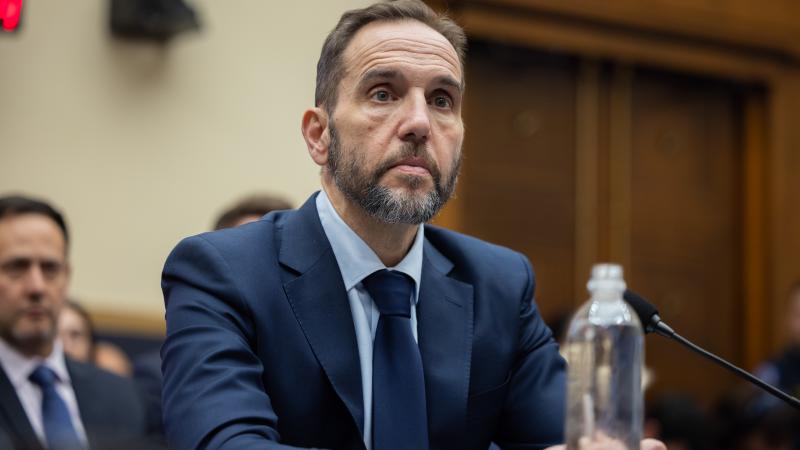Biden has 'no rationale' for halting border barrier construction, says former CBP chief
"If you want to have a secure border, it's going to be better off with a wall than without a wall," said Ronald Vitiello.
There is "no rationale" for President Biden continuing to halt additional border barrier construction, says former Customs and Border Protection (CBP) Chief Ronald Vitiello.
"I don't think there's rationale to stop it," Vitiello said during an interview Monday on Capitol Hill. "So agents that work the border, like I used to do, know where you have a wall you have a better security condition. Walls work. Agents know it. The data shows it, right, so there's no rationale for stopping it.
"It becomes an anchor for all of the enforcement regime that needs to occur at the border. If you want to have a secure border, it's going to be better off with a wall than without a wall. It's an anchor for the agents."
President Biden called for securing the border during his State of the Union address on Tuesday evening. At the same time, his administration has stopped any construction of additional barriers along open areas of the southern border. Constructing physical barriers or "wall" along the border was a priority of the Trump Administration.
Many leading Democrats, including Senate Majority Leader Chuck Schumer and then-Senator Joe Biden, voted for the Secure Fence Act of 2006. Now, Democratic leaders oppose putting additional miles of wall along the U.S.-Mexico border.
Vitiello, who also served as acting director of U.S. Immigration and Customs Enforcement, said the Democratic Party's position on the border wall lacks consistency.
"People who sleep well at night because their doors are locked or they live in a gated community, they don't want an effective border at our southwest border," he said. "It makes no sense to me, it's completely inconsistent.
"Many of the people who are advocating against immigration enforcement or advocating against securing the border, are people who are not affected by illegal immigration, even though the risks exist for all of us, it's certainly a risk to the border community. It's a risk to the sending nations, right? We're destabilizing Guatemala, because we're encouraging anybody that has energy and youth to come to this border, to come to this country."
















